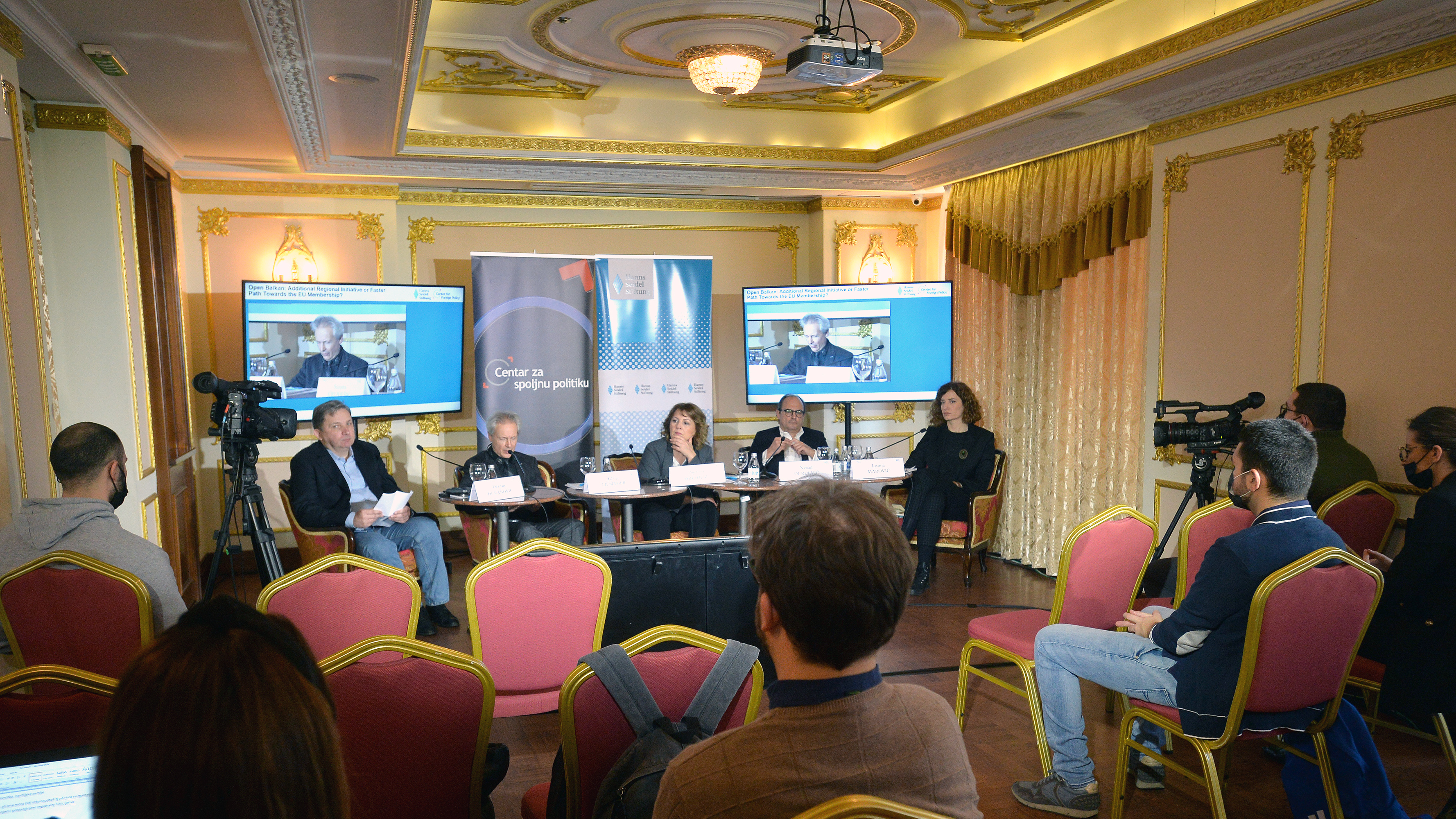Published:
February 10, 2022
Open Balkan Complete Only with All Six Economies of the Region

No multilateral initiative has provoked as many reactions in the region as the Open Balkan Initiative, and no initiative resulted in so many agreements in a short time between the three governments of Serbia, Albania, and Northern Macedonia regarding the more efficient and free movement of goods, services, people and capital. The biggest flaw of this regional initiative is that not all six economies of the Western Balkans are still part of it, it was said at the conference in Belgrade.
Within the first panel "Previous achievements of the Open Balkan Initiative and upcoming implications", advisor to the President of the Chamber of Commerce and Industry of Serbia (CCIS) Nenad Đurdjević pointed out that, what CCIS and other chambers of the Balkans want, is creating a single space for better business.
He added that this applies not only to our companies but also to companies operating in the region, to new investments, to the removal of barriers in order to make business cheaper and harmonized. He stated that the Berlin Process was recognized as a good framework where synergy for the political initiative of those leading to the creation of a single economic space was created, but that at one point it stagnated.
"In May 2020, we realized that the so-called common market within the Berlin Process had great difficulties in implementing the policies from the Action plan," said Đurđevic, reminding that the initiative, apart from the Agreement on roaming charges abolishment for users in the Western Balkans, did not achieve any concrete results for citizens and the business community in the Western Balkans. One of the reasons for launching the "Mini Schengen" Initiative initiated by political representatives of Serbia, Albania, and Northern Macedonia, supported by declarations from Novi Sad, Ohrid, and Tirana, was for principles of the four freedoms, on which the European Union's economy is based upon, to be fully applied in the Western Balkans in order to ensure the exchange of goods and services without barriers and creation of a single labor market.
Harmonization of veterinary and phytosanitary certificates, recognition of accredited laboratories, the introduction of electronic consignment tracking system, better and more intensive cooperation of competent authorities contribute to cheaper and better business, a faster border crossing with minimal controls, and checks.
"The call for all six economies of the Western Balkans to join the initiative is encouraging. We believe that the Open Balkans will be complete and successful only when all six members join, "said Đurđević.
The novelties within the Initiative are the signing of the Agreement on the creation of a single labor market and an electronic number that will enable the citizens of Serbia, Albania, and Northern Macedonia to get a job faster in one of these three countries. He announced that the labor market should open in the first quarter of this year.
In his opinion, the initiative can contribute to the process of normalization of relations and dialogue between Belgrade and Priština by solving problems and removing barriers that prevent better business and joint investment.
